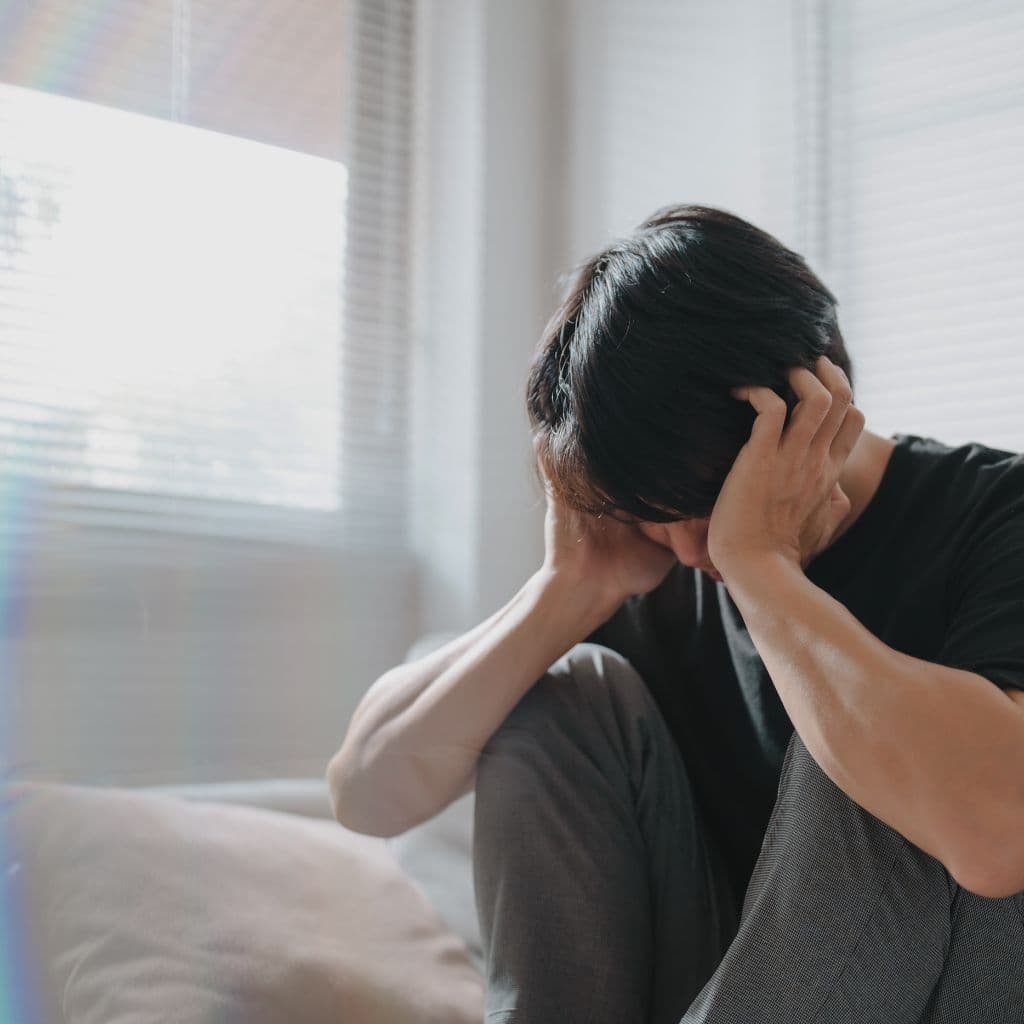Introduction to Depression Therapy

Quick Guide to Depression Therapy
IntroductionWhat's is the depression? Signs and Symptoms of Depression Do You Recognise one of These Common Signs of Depression? How Therapy Helps You Overcome Depression Getting Help FAQs about Depression Final Thoughts on Depression TherapyOsimar Gonçalves
info@coralestherapy.com
(+44) 7928 648181
We know that facing depression can feel overwhelming, like you’re carrying the weight of the world alone. But you don’t have to do it by yourself. In our one-to-one consultations, we’ll explore the root causes of your struggle, helping you uncover the strength that’s always been within you. Each session is a tailored space where you can begin to find light in the darkest of times.
Testimonials
What is Depression?
Depression is more than just feeling sad or having a bad day. It’s a pervasive and overwhelming condition that can affect every part of your life. It’s the kind of heavy, foggy cloud that doesn’t simply lift after a cup of tea or a good night’s sleep. Depression can feel like wading through thick mud every day, with the weight of the world pressing down on you, making even the simplest tasks feel impossible.
At its core, depression is a mental health disorder that impacts how you think, feel, and behave. It’s not a sign of weakness, and it’s certainly not something you can just “snap out of.” In fact, one of the hardest things about depression is the disconnect between what you logically know to be true and how you emotionally experience life. You might recognise that people love and care for you, but in the grips of depression, it can feel like you’re utterly alone.
The Science Behind Depression
Depression is often linked to an imbalance in brain chemicals, like serotonin and dopamine, which regulate mood. It can also be triggered by difficult life events, such as losing a loved one, relationship breakdowns, or prolonged stress. For some, depression is a hereditary condition that runs in the family. Yet, it’s important to know that, like many health conditions, depression can happen to anyone, regardless of their background or current situation.
This mental health disorder affects millions of people worldwide, but depression doesn’t have a one-size-fits-all look. For some, it manifests as persistent feelings of sadness or hopelessness. For others, it’s the numbing sense of emotional detachment, as if they’ve been disconnected from the vibrancy of life. It can show up as irritability, fatigue, changes in sleep patterns, or even physical aches and pains with no clear cause.
It’s Not Just in Your Head
It’s a common misconception that depression only exists in the mind. While the emotional toll is immense, the physical effects of depression are just as real. Many people struggle with insomnia or sleep far more than usual. Appetite can fluctuate wildly—some people lose all interest in food, while others turn to comfort eating to cope with their pain. Concentration becomes difficult, decisions feel impossible, and tasks you once enjoyed no longer bring any pleasure.
Depression is often misunderstood as “just feeling down,” but in reality, it’s a complex and multifaceted condition. It’s the persistent, often invisible weight that pulls you into a cycle of self-doubt and lethargy. There are days when getting out of bed feels like an insurmountable challenge, and the joy that once filled your life is replaced with apathy and disconnection.
It’s Okay to Ask for Help
The good news is, depression is treatable. You’re not doomed to live under this cloud forever, and there’s no shame in seeking help. Therapy, medication, lifestyle changes, and a supportive network can make a world of difference. The first step is acknowledging that what you’re feeling isn’t “just a phase” and that you deserve support.
Signs and Symptoms of Depression
Do You Recognise one of These Common Signs of Depression?
Persistent Sadness or Low Mood
Feeling down or empty most of the time, even without a clear cause.
Loss of Interest in Daily Activities
Losing pleasure in hobbies or activities that once brought joy.
Fatigue and Low Energy
Constant tiredness or lack of motivation, no matter how much rest you get.
Changes in Sleep Patterns
Trouble sleeping, waking up too early, or oversleeping regularly.
Difficulty Concentrating or Making Decisions
Struggling to focus or feeling overwhelmed by even simple choices.
If you do recognise one of these common signs, contact us.
Quick Guide to Depression Therapy
IntroductionWhat's is the depression? Signs and Symptoms of Depression Do You Recognise one of These Common Signs of Depression? How Therapy Helps You Overcome Depression Getting Help FAQs about Depression Final Thoughts on Depression TherapyOsimar Gonçalves
info@coralestherapy.com
(+44) 7928 648181
How Therapy Helps You Overcome Depression
Depression can feel like a silent, relentless storm—one that leaves you drained, disconnected, and overwhelmed. But the truth is, it’s not something you have to face alone. Therapy is one of the most effective tools to help you navigate through the dark, stormy waters of depression and find your way back to a place of peace, connection, and hope.
Therapy isn’t just about talking; it’s about understanding the root causes of your depression and equipping you with practical tools to manage and ultimately overcome it. Whether your depression is caused by a major life event, unresolved trauma, or has seemingly appeared out of nowhere, the right therapeutic approach can make a world of difference.
Therapy: A Safe Space to Heal
At Corales Therapy, we believe that healing starts with creating a safe, non-judgmental space where you can truly be yourself. Depression often makes you feel like you have to hide—your emotions, your struggles, your true self—but in therapy, you’re given the freedom to explore everything that’s weighing on your mind and heart.
Working with Osimar Gonçalves, a qualified therapist accredited by the ACCPH, you’ll be guided through a process of self-discovery and healing. Together, you’ll uncover patterns of thought and behaviour that contribute to your depression, while also learning strategies to disrupt these negative cycles.
Tailored Approaches to Fit Your Needs
There’s no one-size-fits-all solution to treating depression. That’s why Osimar offers a tailored approach that considers your individual circumstances, personality, and life experiences. From cognitive behavioural therapy (CBT) that helps reframe negative thoughts, to mindfulness practices that ground you in the present moment, therapy offers various ways to rewire your emotional responses.
For those dealing with complex emotional issues, psychodynamic therapy can help you uncover unconscious influences that may be driving your depression. Over time, you’ll start to see clearer paths forward and develop a stronger sense of self-awareness.
Overcoming Isolation: Building Support Through Therapy
One of the most challenging aspects of depression is how isolating it can be. You might find yourself withdrawing from loved ones, feeling too exhausted to maintain relationships, or struggling to explain what you’re going through. In therapy, you’ll gain the skills to reconnect—not just with others, but with yourself.
Through this process, you’ll begin to feel more understood, less alone, and empowered to rebuild the connections that depression has strained. This sense of belonging and shared understanding can be one of the most powerful antidotes to the isolation depression brings.
You Don’t Have to Go Through This Alone Getting help is a brave step, but it’s also one of the most important steps you can take toward recovery. At Corales Therapy, we’re here to walk with you through the healing process, whether you’re seeking to manage your symptoms, understand your emotions better, or build resilience for the future.
If you’re ready to start this journey or simply want to explore how therapy can help you, don’t hesitate to reach out to us. We offer compassionate, tailored therapy sessions designed to meet your unique needs and help you find hope and healing again.


